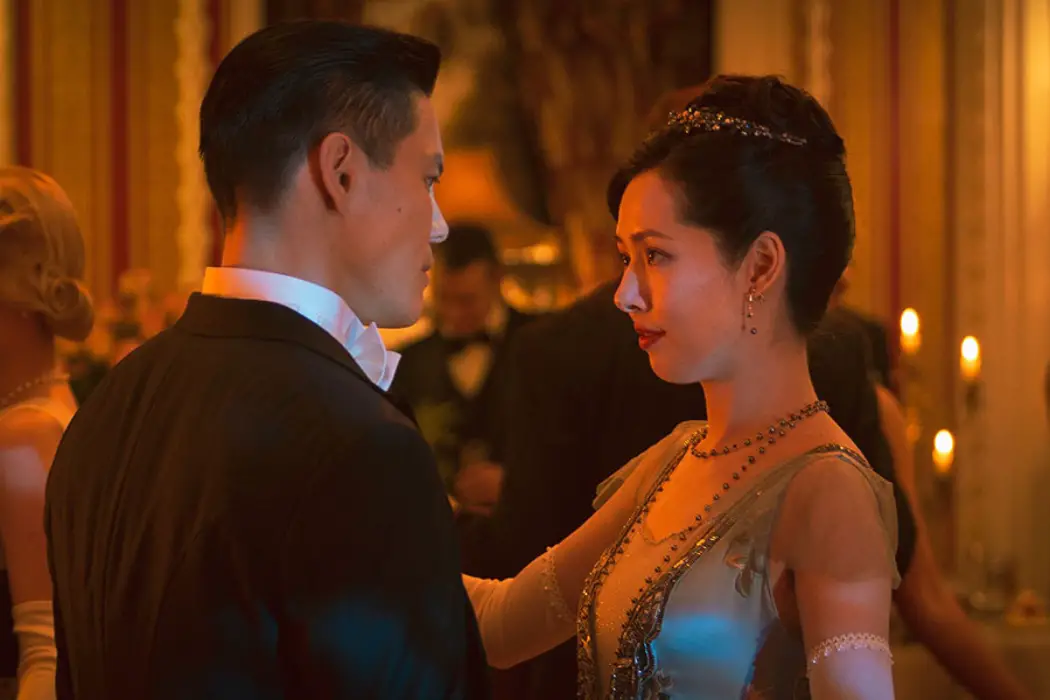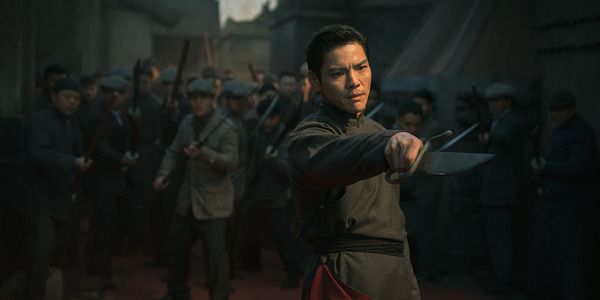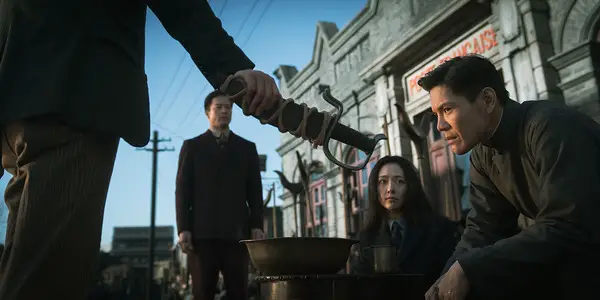Toronto International Film Festival 2023: Interview With Jacky Heung Of 100 YARDS

Wilson is a cinema enthusiast based out of Toronto, Canada.…
Doing double duties as both actor and producer, Jacky Heung (son of legendary Hong Kong producer Charles Heung) found a source of ignited passion when he signed on to make 100 Yards. Having worked up a reputation as an actor capable of performing martial arts on screen, Heung hoped to push himself as an artist in Xu Haofeng and Xu Junfeng‘s genre bending film. He spoke with Film Inquiry during the film’s premiere at this year’s edition of the Toronto International Film Festival.
Wilson Kwong for Film Inquiry: With all the martial arts films that you’ve been in, what made 100 Yards different from those previous experiences?
Jacky Heung: I decided to become a producer a few years ago, but I didn’t know kung fu could be this stylish until I met the directors [Xu Haofeng and Xu Junfeng], and that’s why I chose to make this film. As an action actor, I always get scripts where the character is pretty dumb. You can only fight or be cool, but don’t really need any acting. With this, I can act and do action both at the same time. The second thing is that I wanted to do kung fu without wires, animation or stuntmen. Since I’m still at an age where I can fight like this, I wanted to make a movie this way.

And did you find that being a producer, on top of being an actor, made things a lot more challenging?
Jacky Heung: I think being a producer is better, because when you work with most directors you don’t have a chance to change the script. But most action actors want to act, and most directors think fighters cannot act. So I think if an action actor has a chance to be a producer, they should. They can choose the script, choose a director they want to work with and have a better performance.
How was it working on a film that was so stylistically unique? There was a lot of fighting, but also a lot of film noir aspects that made it very different.
Jacky Heung: Every night, I went to the director’s room to talk, and I’ll also do some meditation even on set. Before everyone was here, I’d go and close my eyes and be conscious, and feel the whole environment. Who is going to be here later? What are you fighting? What’s your mood? It’s not about concentration, it’s about confidence and it’s about consciousness. You have to have the third eye to look at yourself.
How was it working with Andy On? Particularly since the two of you share so many scenes with each other.
Jacky Heung: Well, the lucky thing is that I’ve known him for 20 years. We are very good brothers and he practiced martial arts a lot too, so we had a very natural and organic trust between us. If there’s no trust, no matter how many rehearsals you do, it’s pointless.

What are your influences when it comes to martial arts, specifically in film?
Jacky Heung: Actually, for martial arts, it all comes from one guy named Bruce Lee. Another is Jet Li. Someone else [who has influenced me] that doesn’t do martial arts, is Michael Jordan. I’m a big fan of him, and his philosophy and mentality really inspire me a lot
Watching the film, it looks like the shooting process must have been really tough. As both an actor and producer, what was the most challenging part of making this film?
Jacky Heung: I think the most challenging part was how to put action and acting together. When someone is punching you, you still have to act. When you’re in a very intense or dangerous situation, and you don’t look handsome or like a hero, there’s a lot of human things in the movie that need to be acted out. There were also a few scenes [that were difficult]. The one where I fought two people in the bank, and the last scene with Andy On when it was very hard for him to avoid my knife. Again, the trust between actors, between directors and the whole crew was important.
Film Inquiry would like to thank Jacky Heung for taking the time to speak with us!
Does content like this matter to you?
Become a Member and support film journalism. Unlock access to all of Film Inquiry`s great articles. Join a community of like-minded readers who are passionate about cinema - get access to our private members Network, give back to independent filmmakers, and more.
Wilson is a cinema enthusiast based out of Toronto, Canada. He escapes from his day job by writing random thoughts about cinema on the internet. Although he has a longstanding penchant for Hong Kong cinema, he considers himself to be an advocate for Asian cinema in general. He has been attending the Toronto International Film Festival every year since 2005, and more of his work can be found on his website: www.wilson-kwong.com.













